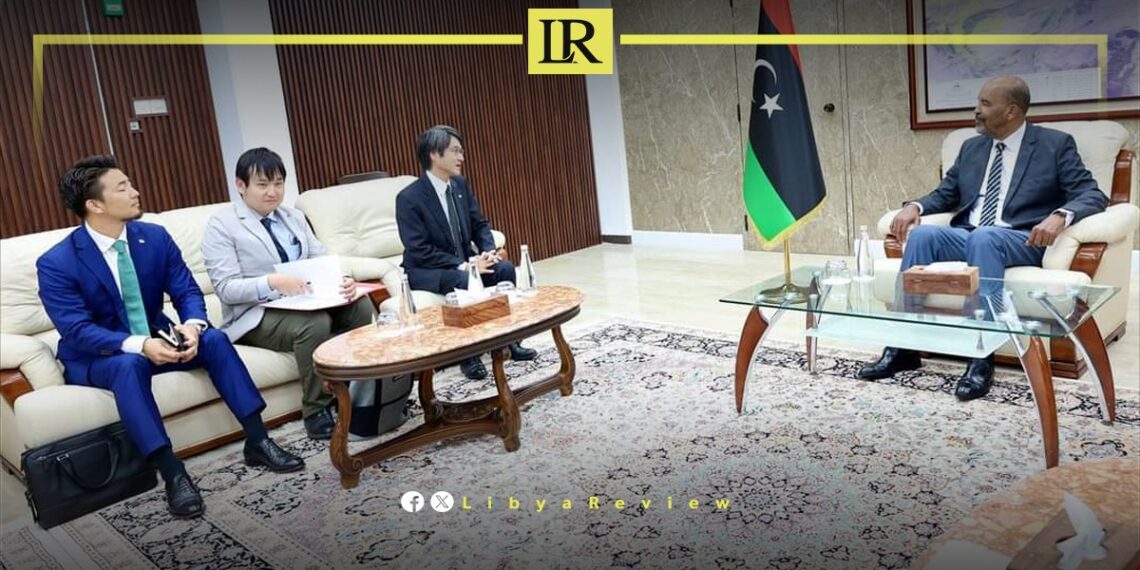On Tuesday, Musa Al-Koni, Deputy of the Libyan Presidential Council, welcomed the Japanese Ambassador to Libya, Shinmura Izuru, at the Presidential Council’s headquarters in Tripoli.
The Presidential Council’s media office reported that during the meeting, the Japanese Ambassador affirmed his country’s desire to strengthen cooperation with Libya in various fields, particularly in capacity building, and to complete the steps needed to establish a Peace Institute in Libya.
Al-Koni expressed his appreciation for the Japanese Ambassador and the resumption of the Japanese Embassy’s operations in Tripoli. He highlighted the commitment to benefit from the Japanese experience in capacity development and the advancement of economic and industrial institutions.
The Ambassador confirmed Japan’s desire for the return of Japanese companies to work in Libya, noting that as a member of the Security Council, Japan will strive hard to strengthen Libya’s position within the international community.
Libya has been in chaos since a NATO-backed uprising toppled longtime leader Muammar Gaddafi in 2011. The county has for years been split between rival administrations.
Libya’s economy, heavily reliant on oil, has suffered due to the ongoing conflict. The instability has led to fluctuations in oil production and prices, impacting the global oil market and Libya’s economy.
The conflict has led to a significant humanitarian crisis in Libya, with thousands of people killed, and many more displaced. Migrants and refugees using Libya as a transit point to Europe have also faced dire conditions.
The planned elections for December 2021 were delayed due to disagreements over election laws and the eligibility of certain candidates. This delay has raised concerns about the feasibility of a peaceful political transition.
Despite the ceasefire, security remains a significant concern with sporadic fighting and the presence of mercenaries and foreign fighters. The unification of the military and the removal of foreign forces are crucial challenges.


